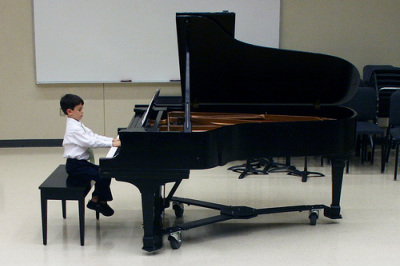How can you tell I am gifted?
Gifted and talented students have the need for autonomy. They have the ability to capture intellectual creativity and critical thinking, and as teachers we have to encompass these capabilities and allow gifted students’ asynchronous development to prosper.
There are a substantial amount of characteristics which will position gifted students apart from their chronological age group. In order to define a gifted and talented student characteristics are generally split into cognitive and affective gifts but not all of them may be suited to every gifted learner.
Susan Winebrenner (2000) provides a succinct list of five key learning characteristics that commonly apply to gifted learners. Gifted learners may display some or all of these traits:
(Education Queensland – The learning place, 2011)
My own definitions:
· get things done quickly
· see the extreme side of things
· sometimes may seem disorganised
· wacky ideas
· quick witted
· loud in conversation
· excitable
· need open-ended opportunities
· see things clearly and get concepts fast
· creative
For more detailed lists of the characteristics of gifted learners visit these websites:
Is my Child Gifted?
The Learning Place – Characteristics
Page 13 of The US National Institute of Education gifted document
Kidspot
There are a substantial amount of characteristics which will position gifted students apart from their chronological age group. In order to define a gifted and talented student characteristics are generally split into cognitive and affective gifts but not all of them may be suited to every gifted learner.
Susan Winebrenner (2000) provides a succinct list of five key learning characteristics that commonly apply to gifted learners. Gifted learners may display some or all of these traits:
- the ability to learn new material in much less time
- the ability to readily retain a quantity of information
- the ability to handle abstract and complex ideas
- have intense interests and passions
- the ability to simultaneously focus on a number of tasks.
(Education Queensland – The learning place, 2011)
My own definitions:
· get things done quickly
· see the extreme side of things
· sometimes may seem disorganised
· wacky ideas
· quick witted
· loud in conversation
· excitable
· need open-ended opportunities
· see things clearly and get concepts fast
· creative
For more detailed lists of the characteristics of gifted learners visit these websites:
Is my Child Gifted?
The Learning Place – Characteristics
Page 13 of The US National Institute of Education gifted document
Kidspot
One of the most admired characteristic of a gifted and talented student:
Sternberg argues that there are six aspects of metacognition (i.e., the awareness of one’s own thought processes) that are performed well by the gifted. These are:
• detecting relations between objects (inference);
• relating aspects of one area to another (mapping);
• predicting on the basis of these maps (application);
• examining predictions in relation to alternative predictions (comparison);
• verifying options (justification); and
• communicating a solution (response).
(Ashman & Elkins, 2009, p. 5)
Sternberg argues that there are six aspects of metacognition (i.e., the awareness of one’s own thought processes) that are performed well by the gifted. These are:
• detecting relations between objects (inference);
• relating aspects of one area to another (mapping);
• predicting on the basis of these maps (application);
• examining predictions in relation to alternative predictions (comparison);
• verifying options (justification); and
• communicating a solution (response).
(Ashman & Elkins, 2009, p. 5)
What Is Gifted?: by rowdi5678

